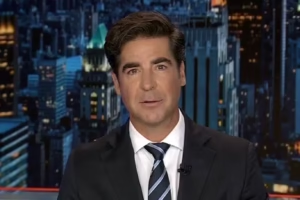What is the Signalgate Scandal?
The Signalgate scandal revolves around a shocking national security breach where National Security Advisor Mike Waltz mistakenly added journalist Jeffrey Goldberg to a classified Signal group chat. The group was discussing a planned U.S. military operation against Houthi rebels in Yemen, raising alarms over how sensitive information is handled within government circles.
This unintentional leak has sparked a heated debate about national security protocols, with lawmakers divided over whether this was a simple mistake or a major security failure.
Understanding the Key Components of the Signalgate Scandal
To better understand the controversy, here is a structured breakdown:
| Key Component | Details |
|---|---|
| Leak Incident | Journalist Jeffrey Goldberg was mistakenly added to a classified Signal chat discussing a military operation. |
| Main People Involved | – Mike Waltz (National Security Advisor) – Jeffrey Goldberg (The Atlantic Editor) – Pete Hegseth (Defense Secretary) – JD Vance (Vice President) |
| Sensitive Information Leaked | Details of a U.S. military strike against Houthi rebels in Yemen. |
| Primary Concerns | Breach of national security, use of unencrypted messaging for military discussions, and administrative negligence. |
| Government Response | Mixed reactions—some defending it as an error, others demanding accountability and investigation. |
Signalgate Scandal
To make the scandal clearer, here’s a visual representation of the key elements and their connections:
+-----------------------------+
| Signalgate Scandal |
+-----------------------------+
/ | \
/ | \
+------------+ +--------------+ +----------------+
| Leak Details | | Lawmakers' Views | | National Security |
+------------+ +--------------+ +----------------+
| | |
+--------------+ +-----------------+ +----------------------+
| Accidental Add | | GOP Investigating | | Calls for Stronger |
| to Signal Chat | | Use of Signal App | | Cybersecurity |
+--------------+ +-----------------+ +----------------------+
Why Are Lawmakers Divided?
Republican Response: Calls for Investigation
- Republican lawmakers, led by Senator James Lankford, are calling for an independent inspector general probe.
- Their concerns focus on how such an error happened, whether classified information was compromised, and if this reflects deeper security weaknesses.
- Some GOP members, however, argue that this was just a minor mistake that doesn’t warrant severe action.
Democratic Response: Demands for Accountability
- Democrats, particularly Senator Mark Warner, view this as an unacceptable breach of national security.
- They emphasize that such a mistake in intelligence or military operations could have serious consequences.
- Many Democrats are pushing for stricter rules and potential resignations within the administration.
The Bigger Question: Is Signal a Secure App for Government Use?
The use of Signal for discussing sensitive national security matters has raised serious cybersecurity concerns.
Pros and Cons of Using Signal for Government Communications
| Advantages | Disadvantages |
|---|---|
| End-to-end encryption protects messages | Mistakes like accidental group additions can happen |
| Open-source and trusted for privacy | No built-in government verification for classified users |
| Simple interface for quick communication | Risk of screenshots and unintended leaks |
Cybersecurity experts warn that while Signal is highly secure, it is not designed for classified military discussions. This incident may lead to new government regulations on communication tools used by officials.
Public Reaction and Media Response
Poll Data Shows Americans Are Deeply Concerned
A recent CBS News/YouGov poll shows that:
- 74% of Americans believe this breach is serious.
- 53% consider it “very serious” and are worried about government security weaknesses.
Media Outlets Criticize the Handling of the Leak
- Politico and Axios have published critical reports on how the administration’s security practices are outdated and need urgent reform.
- The Times reported that this scandal might damage trust in the government’s ability to keep classified data safe.
White House Response: Is the Administration Taking It Seriously?
Despite strong criticism, President Trump has dismissed the scandal as a “witch hunt”. He argues that:
- The mistake did not compromise national security.
- His administration will not make policy changes based on media pressure.
- “Fake news” outlets are exaggerating the situation for political gain.
However, cybersecurity and military experts strongly disagree and warn that failure to address these concerns could lead to future, more serious security failures.
Potential Changes in Government Security Policies
This scandal has already sparked discussions about new policies:
- Banning unsecured messaging apps for discussing classified matters.
- Implementing stricter user authentication before accessing sensitive communication channels.
- Stronger penalties for security lapses, including possible firings for negligence.
If reforms are not made, experts believe the U.S. remains vulnerable to more leaks in the future.
Conclusion: What Does This Mean for National Security?
The Signalgate scandal is more than just a political controversy—it is a wake-up call for the government to improve its cybersecurity practices.
Key Takeaways from This Scandal:
The accidental leak highlights serious weaknesses in communication security.
Lawmakers are divided on whether this was a simple mistake or a major failure.
The public demands stricter regulations on government communication tools.
If no reforms are made, similar (or worse) leaks could happen again.
This issue is far from over, and as investigations continue, the government must decide whether to update its security policies or risk further national security failures.
[USnewsSphere.com / poli.]





